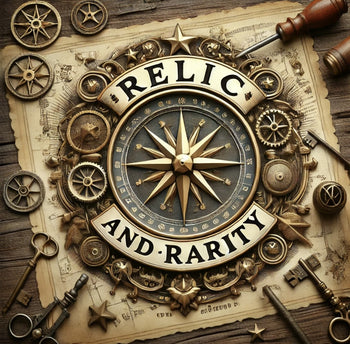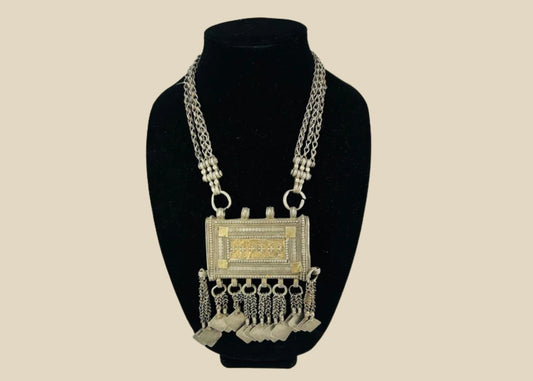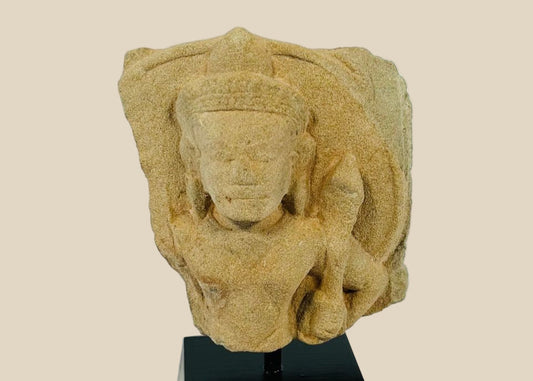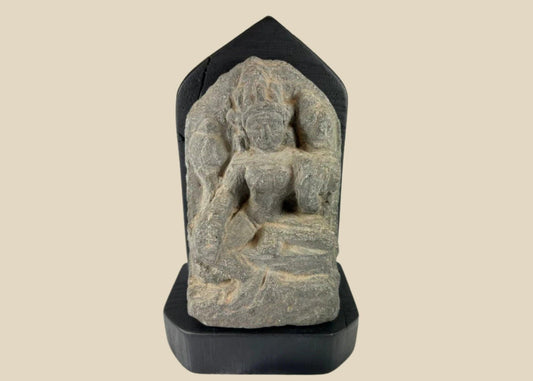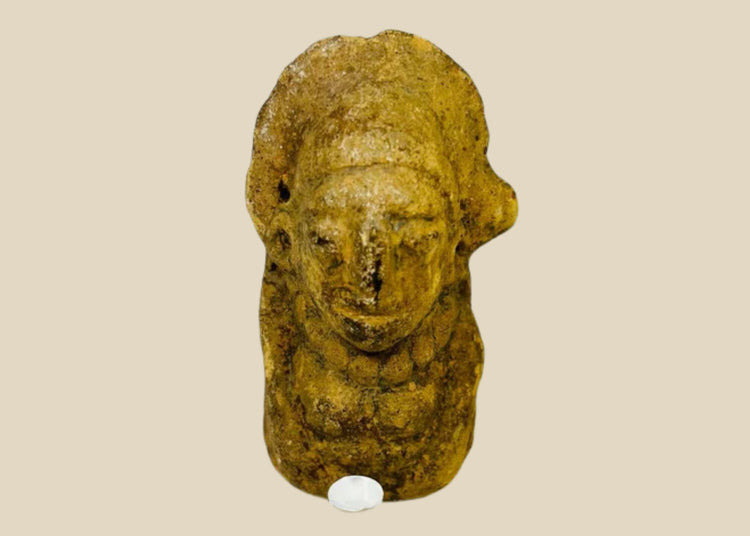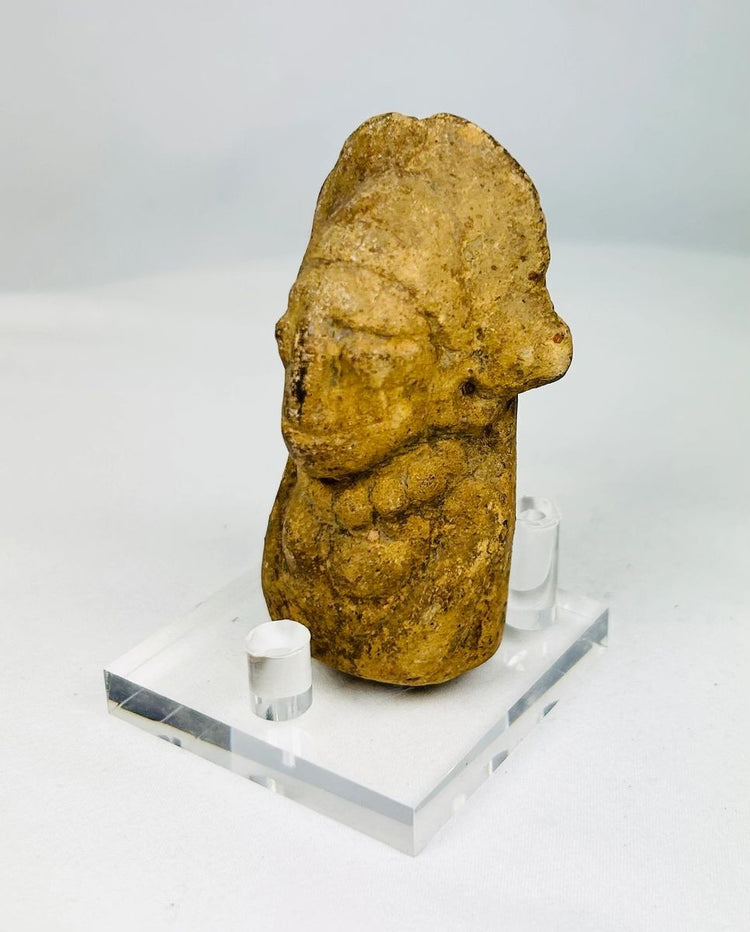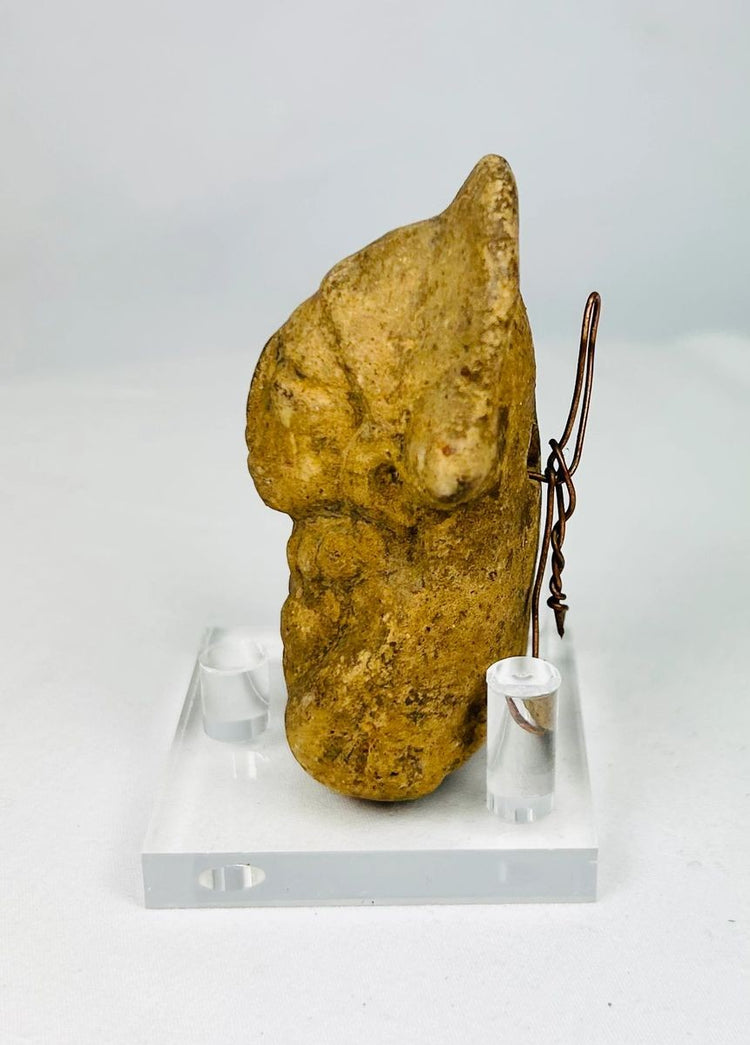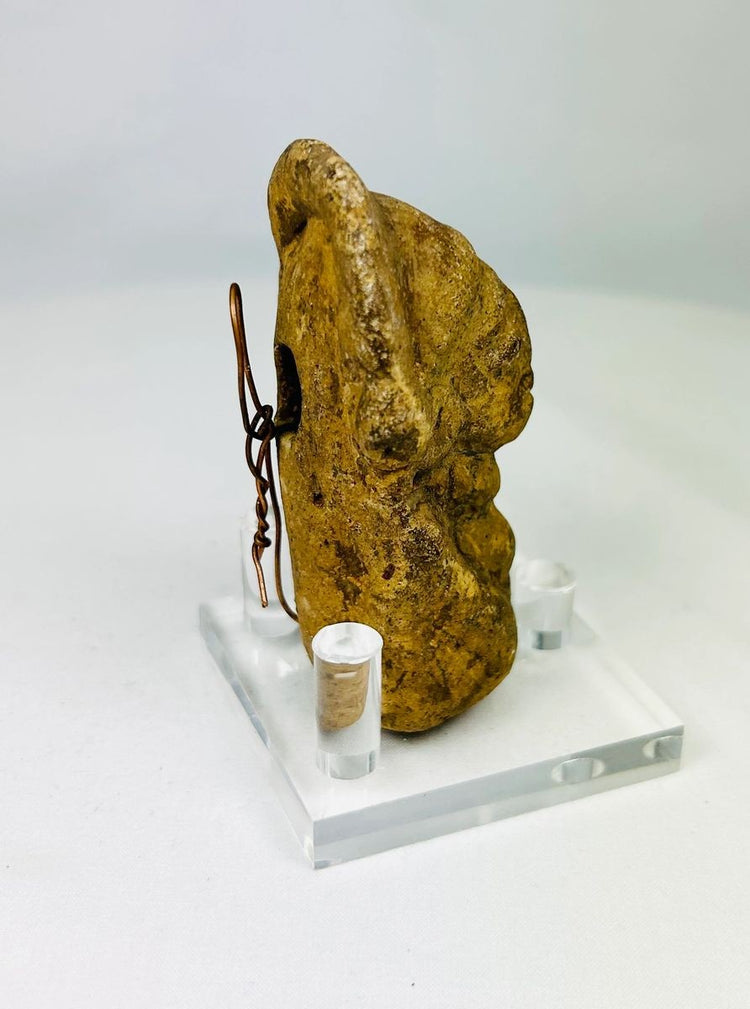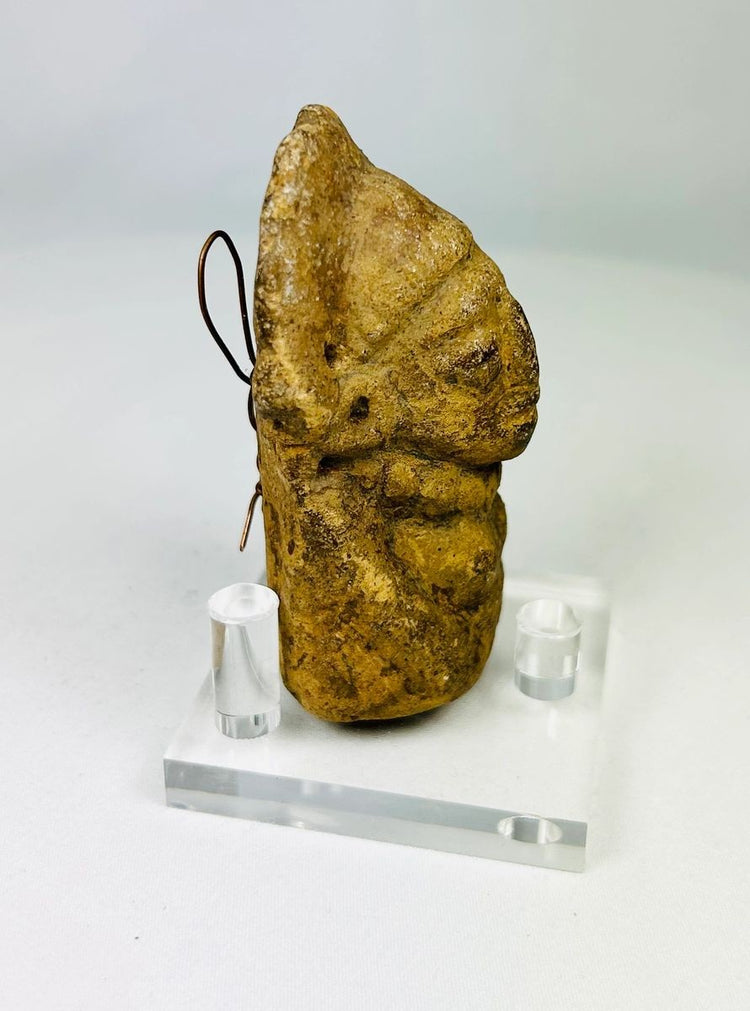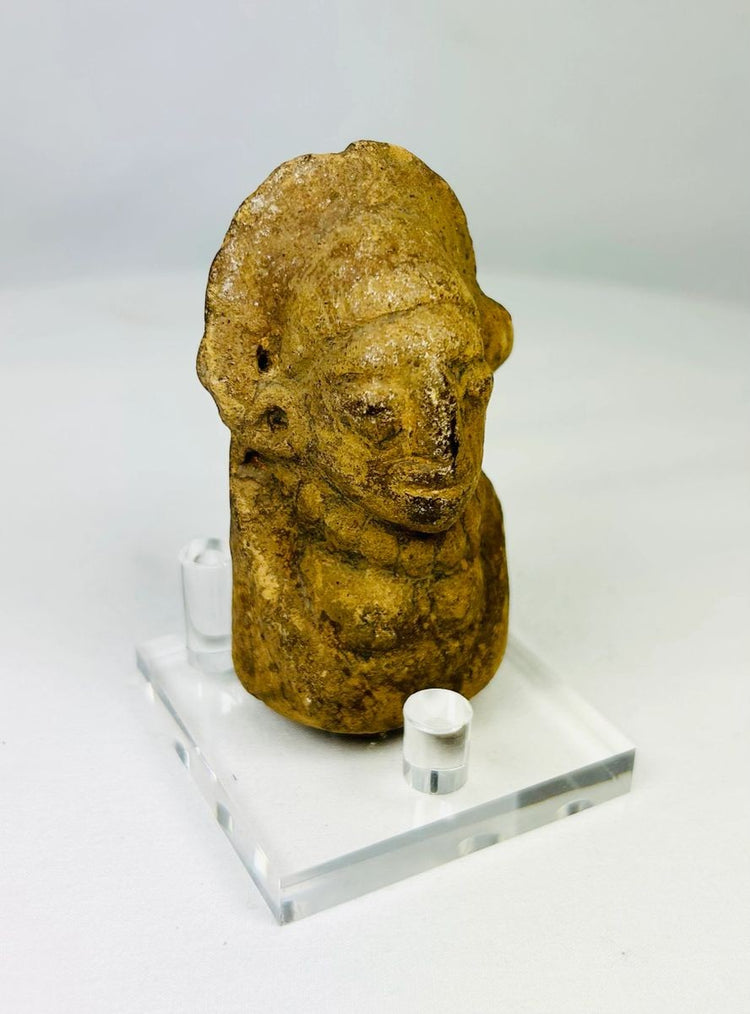Pre-Columbian | Terracotta Bust | Mesoamerican Origin | Circa 200 BCE to 900 CE
Description
More
Less
Historical Context & Origin
Region: Mesoamerica (likely Maya or Aztec cultural sphere)
Material: Hand-molded and fired terracotta
Period: Circa 200 BCE – 900 CE
Description
This remarkable terracotta bust embodies the artistry and symbolic expression of Pre-Columbian Mesoamerica. Dating from a period spanning the rise and flourishing of civilizations such as the Maya and the Aztec, the piece reflects the skill of ancient artisans who worked clay into both functional and ceremonial forms. The bust features a prominent headdress and finely rendered facial details, offering a glimpse into the cultural and spiritual traditions of the time.
Features
- Intricately detailed headdress, symbolizing status, ritual importance, or divine association
- Expressive facial features that convey character despite age-related wear
- Natural surface patina developed over centuries, affirming its antiquity and authenticity
- Compact yet finely crafted form, suitable for ceremonial display or personal devotion
Cultural Significance
Busts such as this were often associated with ritual and religious practice, representing deities, ceremonial figures, or elite individuals within Mesoamerican society. The headdress indicates both status and spiritual significance, underscoring the deep connection between artistic expression and sacred life in ancient Mesoamerica. These artifacts provide invaluable insight into the worldview of civilizations renowned for their complex belief systems, ceremonial traditions, and symbolic art.
Condition
The bust is well-preserved for its age, showing only minor surface wear and imperfections consistent with burial and long-term preservation. These age-related marks enhance its character without detracting from its overall integrity.
Dimensions (approximate)
Height: 3 in
Age
Circa 200 BCE – 900 CE
Learn More
Uncover the Lost Worlds of Pre-Columbian Civilizations
Explore our curated collection of museum-quality Pre-Columbian relics: Ancient Pre-Columbian Artifacts – Relic And Rarity
Description
Historical Context & Origin
Region: Mesoamerica (likely Maya or Aztec cultural sphere)
Material: Hand-molded and fired terracotta
Period: Circa 200 BCE – 900 CE
Description
This remarkable terracotta bust embodies the artistry and symbolic expression of Pre-Columbian Mesoamerica. Dating from a period spanning the rise and flourishing of civilizations such as the Maya and the Aztec, the piece reflects the skill of ancient artisans who worked clay into both functional and ceremonial forms. The bust features a prominent headdress and finely rendered facial details, offering a glimpse into the cultural and spiritual traditions of the time.
Features
- Intricately detailed headdress, symbolizing status, ritual importance, or divine association
- Expressive facial features that convey character despite age-related wear
- Natural surface patina developed over centuries, affirming its antiquity and authenticity
- Compact yet finely crafted form, suitable for ceremonial display or personal devotion
Cultural Significance
Busts such as this were often associated with ritual and religious practice, representing deities, ceremonial figures, or elite individuals within Mesoamerican society. The headdress indicates both status and spiritual significance, underscoring the deep connection between artistic expression and sacred life in ancient Mesoamerica. These artifacts provide invaluable insight into the worldview of civilizations renowned for their complex belief systems, ceremonial traditions, and symbolic art.
Condition
The bust is well-preserved for its age, showing only minor surface wear and imperfections consistent with burial and long-term preservation. These age-related marks enhance its character without detracting from its overall integrity.
Dimensions (approximate)
Height: 3 in
Age
Circa 200 BCE – 900 CE
Learn More
Uncover the Lost Worlds of Pre-Columbian Civilizations
Explore our curated collection of museum-quality Pre-Columbian relics: Ancient Pre-Columbian Artifacts – Relic And Rarity
You May Also Like
